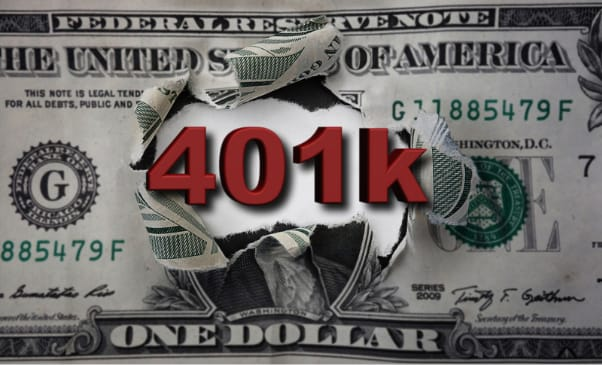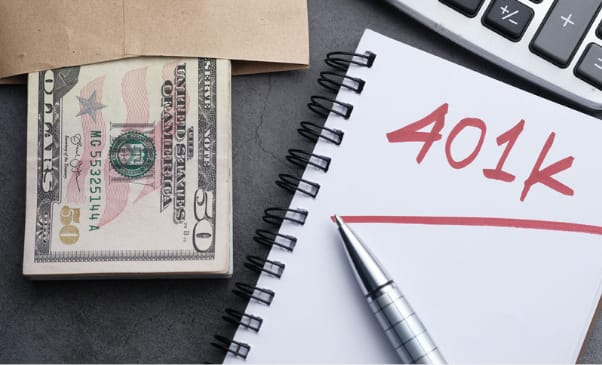If you're in the United States, chances are that you've had a 401(k) plan your entire life. But did you know that there may be a way to reduce your annual tax bill from your 401(k) this year?
Now, while it might not seem like much, if you saved $1,000 this year on taxes when combined with spreading out the rest of an income into long-term investments (dividends or capital gains), it can have a significant impact on your long-term savings.
So, check out these 15 ways to reduce your taxes from your 401(k) this year.
1. Make a Roth IRA Conversion
Some people aren't sold on the idea of making retirement savings into a Roth IRA because they believe there's no tax break in doing so; however, the new tax law includes a conversion that gives you one. And if you convert some or all of your traditional IRA to a Roth, you can make it more beneficial in the long-term by not being taxed at all on this money when it's withdrawn later down the road. (For example, if you make any other type of withdrawal, you'll be taxed on this amount.)
2. Old Dividend Income
If you have old dividend income (income you received from non-qualified dividends back in the '90s) in your 401(k), it might be time to withdraw it. In the new legislation, Uncle Sam is taking a little piece of your money every year to help pay for Medicare Part B, which covers hospital expenses. This loss of potential growth was also listed in the Tax Cuts and Jobs Act as a deduction.
3. Rollover Money
Another way to reduce regular income taxes on your 401(k) is to roll over (transfer) funds into an IRA or other retirement savings vehicle. If you roll over the money into an IRA, then the money is not taxed as regular income.
4. Employer Match
If you have a company match on your 401(k), you may not want to take it all at once. Instead, consider pulling some money out of your 401(k) to roll over into another retirement savings account — then use the company match on that account. This way, you're saving money overall, and also earning that company match without having to pay any taxes on it!
5. Health Savings Account
If you already have a Health Savings Account (HSA), you can use the money in that account to make contributions to your 401(k) plan. In this case, your retirement account will not be hit by regular income tax. Instead, you'll only pay taxes on the balance in the HSA.
6. Executive Retirement Plans
If your 401(k) is a portion of an executive retirement plan, you may want to consider contributing some money — just not all of it or right away. This is because you'll only be taxed on the amount that's not an executive retirement plan; the rest will be untaxed.
7. IRA Contributions
If you have money in a traditional IRA, you can use funds from that account to make contributions to your 401(k). In this case, your retirement account will not be hit by regular income tax. Instead, you'll only pay taxes on the balance in the IRAs.
 8. 8. Savings Bond
8. 8. Savings Bond
If you hold savings bonds in your 401(k), you can use the proceeds from selling them to pay for a portion of your retirement plan at any time. In this case, your retirement account will not be hit by regular income tax. Instead, you'll only pay taxes on the balance in the savings bonds.
9. Distributions
If you're not sure what to do with that money in your 401(k), consider taking a distribution and then reinvesting it somewhere else, rather than taking it as income. This way, you'll still have the money in your retirement account, but not pay taxes on any of it.
10. Rollover from Coverdell ESA
If you have money in a Coverdell ESA, you can use the proceeds from selling bonds to make a transfer into a 401(k). In this case, your retirement account will not be hit by regular income tax. Instead, you'll only pay taxes on the balance in the Coverdell ESAs.
11. Rollover from 529 Plan
If you have money in a 529 plan, you can use the proceeds from selling bonds to make a transfer into an IRA. In this case, your retirement account will not be hit by regular income tax. Instead, you'll only pay taxes on the balance in the 529s.
12. Rollover from Education Savings Plan
If you have money in an education savings plan like an ESA or 529, you can use the proceeds from selling bonds to make a transfer into your 401(k) (or any other retirement account). In this case, your retirement account will not be hit by regular income tax. Instead, you'll only pay taxes on the balance in the ESA or 529s.
13. In-Service Withdrawals
Another way to reduce your taxes on your 401(k) is to make in-service withdrawals instead of regular withdrawals. Doing this will help you reduce your taxable income and maximize the amount of money you're saving for retirement. Keep in mind that if you have a traditional 401(k), distributions will affect the RMD (required minimum distribution) rules, as well.

14. Loans
If you have a loan from your 401(k), you can use it to contribute to another account, such as a traditional IRA or Roth IRA. The additional money in the other account won't be taxed as regular income; it'll only be taxed on what's used for the loan.
15. Penalties/Fees
If you want to take advantage of the tax breaks outlined earlier, there are all kinds of fees and penalties that could prevent you from doing so. Some of these are 1. Penalty for early withdrawal 2. Penalty for taking more money than is needed 3. Penalty for loans 4. Tax-deferred accounts
Conclusion
Hopefully, these 15 ways to reduce taxes on your 401(k) will help you save more this tax season while staying within the limits of the new tax law that was just passed!




